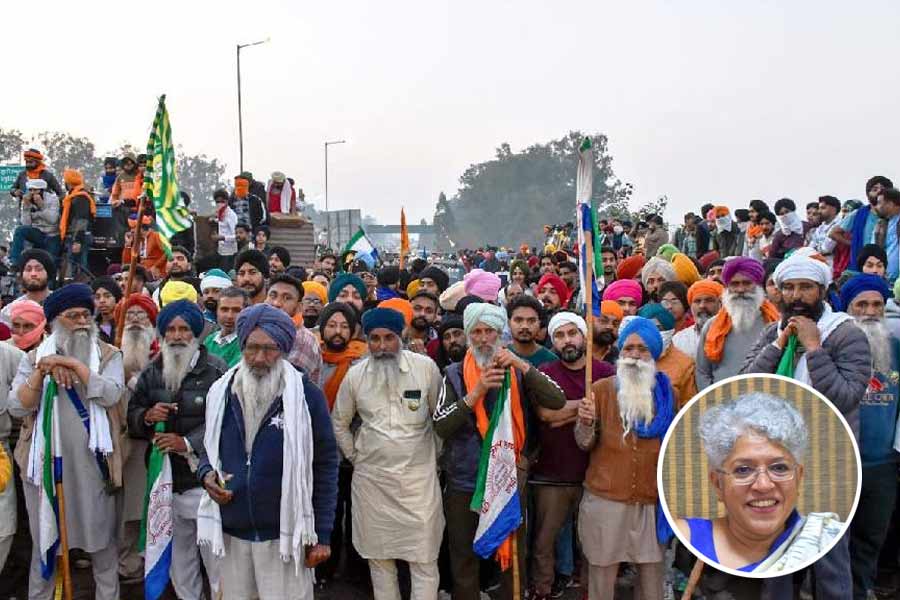The daughter of the late agricultural scientist M.S. Swaminathan, the architect of India’s Green Revolution who was awarded the Bharat Ratna this month, has disapproved of the government’s actions against the farmers marching to Delhi, saying they cannot be treated as criminals.
Economist Madhura Swaminathan’s comments come at a time when the government has used tear gas against the protesting farmers — who want a law guaranteeing minimum support prices (MSPs) for crops — and sealed Delhi’s borders to prevent them from entering the capital.
“The farmers of Punjab today are marching to Delhi. I believe, according to the newspaper reports, there are jails being prepared for them in Haryana, there are barricades. All kinds of things are being done to prevent them (entering Delhi). These are farmers; they are not criminals,” she said at an event held at the Indian Agriculture Research Institute on Tuesday to celebrate the Bharat Ratna for her father.
Madhura said: “I request all of you, the leading scientists of India… (we) have to talk to our farmers. We cannot treat them as criminals. They are our annadatas. You have to find some solutions. I request, if you have to honour M.S. Swaminathan, we have to take the farmers with us with whatever strategy that we are planning for their future.”
The police have used teargas and water cannons against the farmers near the Shambhu border between Haryana and Punjab.
Farmers — mainly from Punjab, Haryana and Uttar Pradesh — had earlier held a yearlong protest at Delhi’s borders in 2020-21 and forced the government to revoke three new farm laws. The farmers are now accusing the government of having agreed to enact a law guaranteeing MSPs at the time but not honouring the promise.
Atul Sood, a professor with JNU’s Centre for the Study of Regional Development, told The Telegraph on Thursday that providing guaranteed MSPs was the minimum the government needed to do to support farmers.
He said that 86 per cent of India’s farmers were unable to sell their crops at the MSPs fixed by the government, because these are not part of a legal framework.
The central government notifies MSPs for 22 crops, including paddy and wheat. However, private traders procure the crops at lower prices than the MSPs. There is now no law to punish such traders.
“The government is worried about the additional costs involved if it enacts a law to ensure the procurement of crops at the MSP. This shows the farmers are not a priority with the government,” Sood said.
He said the government allowed tax concessions of Rs 1 lakh crore every year to Indian domestic corporate houses, but they were not increasing their investments. He alleged that multinational companies were involved in tax abuse to the tune of Rs 75,000 crore a year. Yet the government was worried about the cost involved in guaranteeing MSPs, Sood rued.
“The idea that people in large numbers would shift from agriculture to non-agriculture is yet to happen in India. The consumption demand from rural India remains low, discouraging foreign investors from investing in India,” he said.
“The farmers need support at this time. A law on MSPs is the minimum the government has to do.”
On February 6, agriculture minister Arjun Munda told the Lok Sabha that the government had formed a committee to suggest how to “make MSP more effective and transparent; to promote natural farming; and to change crop pattern keeping in mind the changing needs of the country”.
“The meetings of the committee are being held on regular basis actively to deliberate on the subject matters assigned to it. Till date, thirty-seven meetings/ workshops have been held by the committee,” he said.











